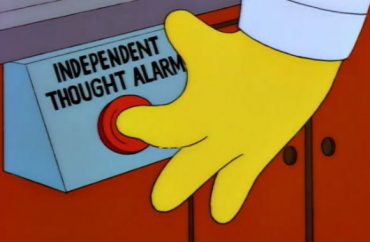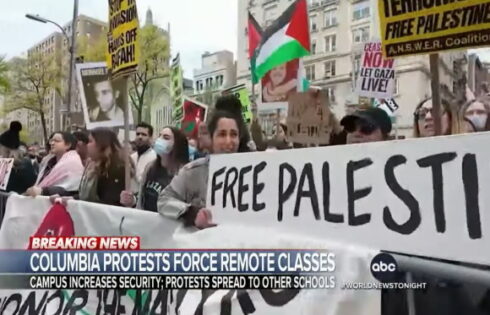
Shaming practices threaten ability to ‘make independent judgments’
“Social Media mobs. Cancel culture. Campus speech policing. These are all part of life in today’s America. Freedom of expression is in crisis. Truly open discourse—the debates, exchange of ideas, and arguments on which the health and flourishing of a democratic republic crucially depend—is increasingly rare. Ideologues demonize opponents to block debates on important issues and to silence people with whom they disagree.”
This is the opening paragraph of the self-proclaimed “Philadelphia Statement,” a two-page declaration that resulted from “meetings between a diverse working group of prominent thinkers, scholars, and practitioners.” The City of Brotherly Love was the setting when “[m]en of diverse views” found a common purpose despite their “fierce disagreements” in 1776 and 1787.
The signatories are alarmed by the “rise in blacklisting and demonizing of those who hold opposing views,” which is “steadily eroding the will of Americans to express their sincere beliefs and respect those with whom they disagree.”
The statement is signed by more than 40 academics, policy researchers, religious leaders and human rights activists, notably Princeton University Prof. Robert George and Ayaan Hirsi Ali, the Somali-born Dutch-American politician and outspoken critic of radical Islam. Five are associated with the American Enterprise Institute, including “Factual Feminist” Christina Hoff Sommers and libertarian sociologist Charles Murray.
Also included: two participants in the “grievance studies” publishing project, Portland State Prof. Peter Boghossian and New Discourses founder James Lindsay, a mathematician and author.
“Our liberty and our happiness depend upon the maintenance of a public culture in which freedom and civility coexist—where people can disagree robustly, even fiercely, yet treat each other as human beings—and, indeed, as
fellow citizens—not mortal enemies,” the statement reads.
The “dissenting and unpopular voices” of any persuasion “have often guided our society toward more just positions,” yet they are being “shamed or intimidated into self-censorship.”
“The American tradition of freedom of expression … enables us to learn from, and peacefully live with, one another despite differences,” the statement continues: “It further instills in us an understanding that the mere exposure to ideas we find offensive is not an act of ‘violence.'”
This tolerance is under mortal threat from “the stigmatizing practice of blacklisting ideological opponents” by slurring their views with the “hate” label, regardless of how “mainstream” their ideas are. It’s not just colleges cracking down on speech to protect “campus orthodoxy,” but also corporations imposing “hate speech” policies.
They harm the ability of citizens to “make independent judgments” and “foster conformism,” training people to use censorship when confronted with “intellectual challenges.” The letter quotes Frederick Douglass twice on the importance of free speech; the former slave stated plainly that liberty is “meaningless” without the right to “utter one’s thoughts and opinions.” (One signatory: Rev. Dean Nelson, chairman of the Frederick Douglass Foundation.)
In a line that has been demonstrated repeatedly in these increasingly woke years, the statement notes that “self-appointed speech arbiters” fail to appreciate that the ideological “winds inevitably shift, somethings rapidly,” making them the targets.
It argues against tolerating “hate speech” exceptions to the principles of free speech, as they are “impossible to define” and often used by the powerful “to silence dissenting voices”:
[I]f we aspire to be a society that is pluralistic and free, one in which we can forge our own paths and live according to our own consciences, then we must renounce ideological blacklisting and recommit ourselves to steadfastly defending freedom of speech and passionately promoting robust civil discourse.
The statement’s website calls it “a starting point” intended to “ignite a lasting movement marked by a commitment to free speech, respect for those with different views, and peaceful coexistence despite differences.”
Read the statement and explanatory materials on its website.
MORE: Anti-Trump academics condemn ‘forces of illiberalism’ on the left
IMAGE: Frinkiac.com
Like The College Fix on Facebook / Follow us on Twitter





Please join the conversation about our stories on Facebook, Twitter, Instagram, Reddit, MeWe, Rumble, Gab, Minds and Gettr.